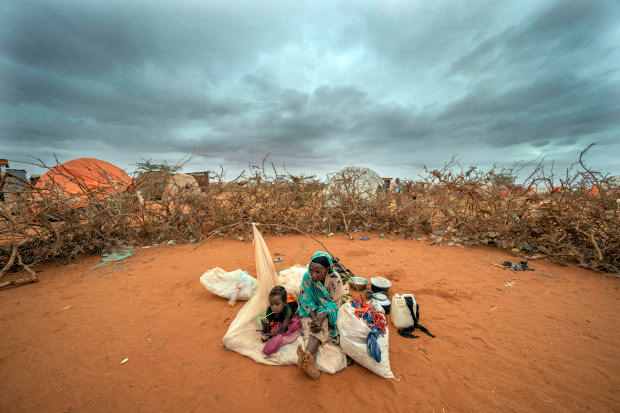In the sprawling savannahs and lush wetlands of Africa, particularly in countries like South Sudan, a silent catastrophe is unfolding. The hushed whispers of the wind carry tales of desolation, and every drop of rain that falls screams of the irony that plagues this land. It’s a narrative that is repeated across the continent: Africa’s fragile states, despite their minimal contribution to global emissions, are becoming the prime casualties of a climate crisis they did little to create.
South Sudan stands as a testament to this grim reality. Already grappling with internal conflicts and sociopolitical challenges, climate change adds another layer of complexity to its volatile situation. From the insidious creep of temperature hikes to the sudden onslaught of floods, these climate adversities are not just natural calamities; they are potent catalysts for unrest and discord. With increasing droughts and floods, resources become scarcer, deepening the divisions between pastoralists and farmers as they wrestle over dwindling grazing lands and water sources.
The cascading effect doesn’t stop there. Livestock losses, intensified by climate-related challenges, stoke the flames of existing rivalries, leading to increased cattle raids and communal conflicts. The fallout? Displacement, escalating rivalries, and the dark cloud of armed confrontation hovering over communities.
And at the heart of this maelstrom are the most vulnerable – children and youth. They bear the brunt of this unforgiving storm, facing injuries, trauma, and the heart-wrenching pangs of hunger. Yet, their narratives are often relegated to the shadows, painting them as mere actors in a broader conflict, rather than recognizing their potential as catalysts for change and harmony.
The numbers are staggering. East Africa, a region already facing myriad challenges, has been hit with losses amounting to nearly $30 billion from 2021 to 2023. The stark realities are there for anyone to see: millions plunged further into poverty, livelihoods destroyed, and entire ecosystems in jeopardy. Yet, the irony remains. While rich industrial nations spew emissions without restraint, it is the people in countries like Ethiopia, Kenya, Somalia, and South Sudan who pay the ultimate price.
The climate crisis, as it unfolds in Africa’s fragile states, is more than an environmental concern; it’s an alarming testament to global inequalities. Small island nations watch helplessly as their lands are swallowed by the encroaching seas, a chilling premonition of what might befall entire regions if the current trajectory isn’t altered.
This isn’t just an African problem; it’s a global one. Climate justice is not just a buzzword—it’s a clarion call to recognize and rectify the disproportionate burdens borne by those least responsible for the crisis. And why is this imperative? Because it calls upon the global community, especially those primarily culpable for the climate debacle, to extend their hand in solidarity, to bridge the chasm of inequality, and to bring justice to those who have been silently suffering for far too long.
Image Credit: JEROME DELAY/AP




